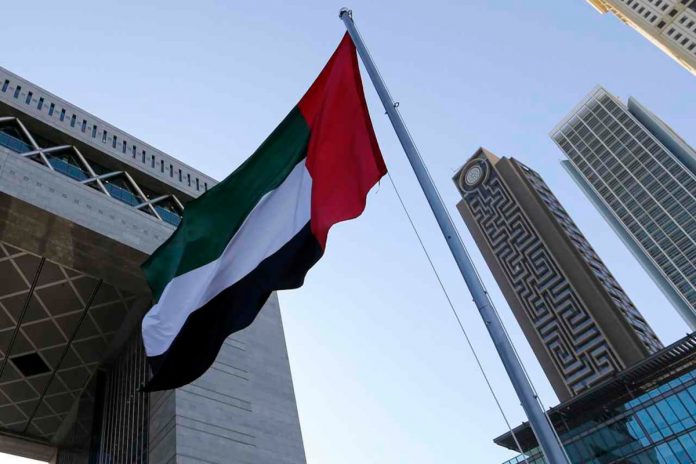This article is written by Ishan Arun Mudbidri, from Marathwada Mitra Mandal’s Shankarrao Chavan Law College, Pune. This article talks about the various drug laws imposed in the middle east and the recent developments regarding the same.
This article has been published by Diva Rai.
Introduction
“Drugs are a bet with your mind.”
- Jim Morrison
Crimes don’t last long in the middle east. Otherwise known for their advanced infrastructures and everlasting oil reserves, one thing which the Arab Emirates countries don’t get enough credit for, is their enforcement and justice delivery mechanism. The rules and regulations in these countries regarding even the smallest of things like snatching someone’s phone are very strict. Similar is the case for drugs and other narcotic substances.
The laws
The UAE is governed by the strict Shariah Law. Hence, any prescription or over-the-counter medication is considered illegal. The UAE has an absolute zero-tolerance policy against drugs. Recreational drugs are also banned and so is alcohol which is available only to individuals with a liquor permit. The people getting caught in possession of drugs are usually foreign travelers and the airports are where these drug laws are used to the fullest. In a recent case, an Indian couple was arrested in Qatar in possession of drugs, which were found in the bag they were carrying. This bag was supposedly given to them by a relative to be handed over to someone in Qatar. Hence, this couple unknowingly were carrying drugs and despite being innocent, had to spend time in jail.
The UAE Federal law no. 14 of 1995
The drug laws in the middle east are very strict. The foundation of these drug laws was laid in 1996 when a legislation was passed allowing the death penalty for drug trafficking. This law prohibits drugs and suggests various countermeasures against the possession of narcotic substances. Mentioned below are some of the important provisions under this law:
Article 6
This Article states that the possession, import, export, of narcotic drugs, shall be prohibited. The drugs can only be used for a scientific research purpose, by a competent authority.
Article 11
Only Government institutes and hospitals, licensed medical pharmacies and warehouses, can procure narcotic substances by issuing a written permit in the name of a competent administrative authority according to this Article.
Article 18
The individuals who are given permission to use the particular drug should appoint a pharmacist who will be responsible for the substance.
Article 24
The pharmacies must issue the narcotic substances only with a prescription from a physician who has the understanding and is licensed to practice the profession of medicine.
Article 31
The manufacturing units cannot use a narcotic substance in pharmaceutical preparations without taking permission.
Article 35
Cultivating plants producing narcotic substances shall be prohibited.
Barring this, 8 Schedules were also added in the law, which enlists the various substances that should be considered as narcotics. Further, the law punishes drug offenders with a jail time of 4 years and a fine of 10,000 dirhams. The law has been amended a lot, however, the recent 2016 amendment is an important one. This Amendment reduced the period of punishment for first-time offenders to two years and also gave the courts an option of adding a minimum fine of 10,000 dirhams. Possession of drugs found in the blood or urine of a person is also classified as illegal.
Prescription drugs
Even controlled and prescribed medications have certain restrictions in the middle east. The medications that are easily available in other countries, may not be available in the UAE. Drugs are divided into Class A and B. Class A drugs are narcotic and psychotropic drugs that are fully controlled and class B are the ones that are semi-controlled. Both these classes of drugs are not easily available, nor are they imported into the country. Foreign travelers wanting to bring medications into the UAE must get authorization through an online portal. Further, they must provide a copy of the prescription which they have taken from a licensed practitioner.
Reason for stringent laws
Now that we have a little idea of how strict the drug laws in the middle east actually are, it is important to find out the real reasons behind them being so strict. The drug that we are dealing with here is cannabis, also popularly known as marijuana. Cannabis includes mainly two components, cannabidiol, and tetrahydrocannabinol. Drugs cost the middle east a lot of money. According to a 2016 survey conducted by the National Rehabilitation Centre in Abu Dhabi, the UAE loses around Dh5.5 billion due to drug addiction. Some of the typical and universal causes of drug consumption like peer pressure, stress relief, boredom, etc. added to the decreasing family values among the youth hence, the zero-tolerance policy against drugs.
The National Rehabilitation Centre
The national rehabilitation centre in Abu Dhabi stands as a lone driving force against substance abuse in the Emirates. Established in 2001, the organization has been pivotal in achieving various goals as a treatment and rehabilitation facility against drug abuse. It has produced unparalleled success stories of people who were really badly influenced by drugs but came out of it through rehabilitation and treatment. Since its formation, the centre has registered around 2,500 cases, most of which volunteered for self-treatment, and the others were recommended by the Ministry of Health.
The centre conducts various surveys related to drug abuse and then hands over the details to the government. In a similar survey, Dr. Marzouqi the Director of the Public health and Research Department in the NRC pointed out that, the majority of the cases relating to drug abuse involve addicts in the 20-30 age group. He further advised the parents of young children to be alert and to keep an eye on the behavior of their young ones in case any signs of drug consumption show up.
Recent developments
The 1996 legislation of the UAE against the use of narcotic and psychotropic substances proved to be a success. However, the long-standing laws seemed to be really harsh on foreign travellers. Hence, the government passed Federal decree no. 30 of 2021 to make certain changes in the 1996 law. Some of the major changes included treatment for first-time offenders, optional deportation of ex-pats caught in drug-related cases, and severe punishments for serial offenders. Further, the decree establishes various specialized units to serve as treatment and rehab facilities with binding confidentiality guidelines. This means that the units shall maintain complete confidentiality about all the information stored.
Punishment
- The penalties imposed on the offenders extend to a minimum of 3 months of imprisonment and a fine of up to AED 20,000.
- For repeat offenders, imprisonment is up to 6 months and a fine of a minimum of AED 30,000.
- For those influencing a drug-related offence, the imprisonment is at least 5 years and the fine is up to AED 50,000.
- For getting involved in the sale of drugs, the imprisonment is at least 10 years and a fine of up to AED 100,000.
The new decree gives the courts the freedom to exchange drug-related offences with the treatment of the first-time offenders in the specialized units.

Few other countries with equally stringent drug laws
The drug laws in the middle east are considered harsh, however, there are a few other countries that have imposed stricter drug regulations.
China
In China, getting caught for possession of drugs can land one in a compulsory drug rehabilitation centre helmed by the Chinese government. In more heinous drug crimes, punishment can extend up to execution.
Malaysia
People selling drugs in Malaysia can end up getting a death penalty, and a fine or jail time can be imposed on the individuals in possession of narcotic substances.
Iran
Opium is a problem in Iran for which, the main reason is that it is produced in the neighbouring country of Afghanistan. However, drug regulations are also strict here for which the maximum punishment is the death penalty.
Indonesia
Laws against drugs are very unique and different in the world’s largest island country. People in possession of marijuana are rewarded a jail time of at least 20 years whereas for possession of drugs, the jail term is 12 years, and for the sale of drugs, a death penalty is imposed.
North Korea
Foreigners are not frequent in North Korea however, if you do visit the country, do not bring drugs. Getting caught for possession of drugs can land one in a prison camp for a long stay.
Critical analysis of the laws
The drug laws in the UAE are an example of how stringent their justice delivery system actually is. However, despite there being a zero-tolerance policy, drug-related cases remain almost unchanged. This is because the airports are strictest in terms of checking for drug trafficking cases so, most of the focus is on people entering the middle east rather than the citizens residing there. Other causes may include an increase in wealth due to the rise in oil.
In a survey conducted by the government, around 6.1 out of every million people died due to drug abuse in 2015. Further, the United Arab Emirates Human Rights Report in 2020 showed that the prisons where drug abusers are kept had problems of overcrowding, poor sanitary conditions, and lack of proper medical care. Hence, drug abuse remains a concern for the middle eastern countries and is far from over.
Conclusion
Drug abuse in the middle east is seen from a historical and cultural point of view. Substances such as opium were seen in the medieval period in ancient Egypt. The Holy Quran in its several verses mentions why substance use is forbidden hence the reason why society does not accept it. Due to this, the prevalence of drug abuse and substance misuse is very minimal in the middle eastern countries, as compared to the west. It has been a collective effort on the part of the UAE government and various other organizations, to not just control the incidents relating to drugs, but also in giving the offenders a chance to get treated and properly rehabilitated so as to come out as better human beings.
References
- https://sherloc.unodc.org/cld/uploads/res/document/are/federal-law-no-14-of-1995_html/UAE-fedlaw_14-95.pdf
- https://u.ae/en/information-and-services/health-and-fitness/drugs-and-controlled-medicines
- https://nrc.gov.ae/
- https://www.expatica.com/ae/living/gov-law-admin/drugs-and-alcohol-in-the-united-arab-emirates-70991/
- https://theses.ncl.ac.uk/jspui/handle/10443/173
LawSikho has created a telegram group for exchanging legal knowledge, referrals and various opportunities. You can click on this link and join:
https://t.me/joinchat/L9vr7LmS9pJjYTQ9
Follow us on Instagram and subscribe to our YouTube channel for more amazing legal content.
 Serato DJ Crack 2025Serato DJ PRO Crack
Serato DJ Crack 2025Serato DJ PRO Crack










 Allow notifications
Allow notifications


